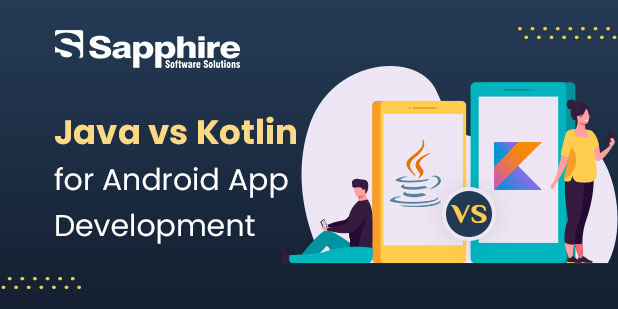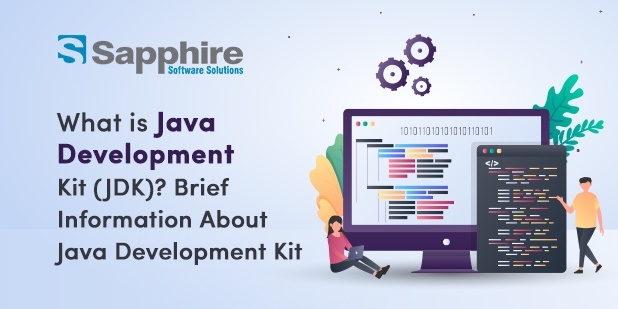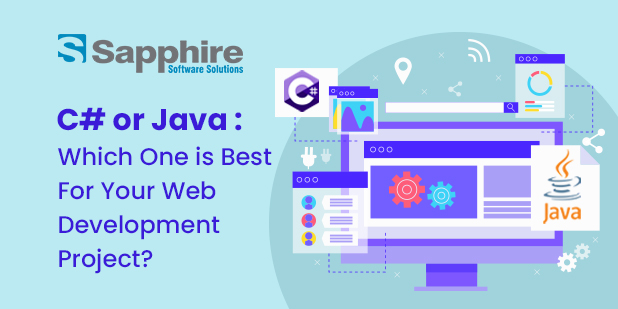Kotlin vs. Java is a topic as passionately debated among developers for Android App Development as the old Android vs. iOS argument. We’ll try to discover concrete solutions to this question today.
Introduction to Kotlin
JetBrain’s technologists created Kotlin to make Java more productive. It is a statically typed language used for JavaScript and Java Virtual Machines (JVM). Google proclaimed it the preferred language for development in 2019, resulting in a significant increase in its usage.
Popular Kotlin-Created Apps
Among the most popular Kotlin-based apps are:
Trello
Evernote
Coursera
Pinterest
Uber
Many more behemoths are contemplating switching from Java or other languages to Kotlin.
Kotlin Frequently Asked Questions
Because Kotlin is a younger language than Java, it is surrounded by many questions and to dispel any worries that many new (and even experienced) developers may have, here are, a few Kotlin FAQs answered.
Should I study Java first, then Kotlin?
You may start learning Kotlin without being a Java expert if you are an experienced developer who knows the basics of mobile app development.
Can I use Kotlin for Web Development as well?
Because Kotlin is a full-stack solution, we may also use it for web development. You can also use Kotlin on the server, and we can use it on both the front end and the backend.
Are Kotlin and Java the same thing?
Not! We wouldn’t need to have this either-or argument if that were the case. In some respects, Kotlin and Java are similar, yet they vary in speed and performance.
An Overview of Java
Sun Microsystems, and Oracle subsidiary, introduced Java, an object-oriented programming language, in 1995. Java underpins a substantial percentage of Android apps as well as Android itself. That is why it is one of the best options for any Android app development company. Furthermore, most Java parts are open-source, allowing for simple development.
Java Apps That Are Popular
Among the most popular Java-based programs are:
- Spotify
- WorldWind by NASA
- Signal
- CashApp
- Minecraft
Head-to-Head Evaluation
Let us now examine the differences between Kotlin and Java-based on some of their characteristics.
Coding Quickness
The shortness of Kotlin is one of its primary advantages. To complete a task quickly, you can write far less code in Kotlin than you would in Java. It implies you’ll be able to develop Kotlin code faster.
With Kotlin, though, you may need to spend more time thinking about the answer. That time is reduced while using Java. As a result, it may be up to each programmer to determine which language is truly quicker for them to code in.
Functionality and performance
While both languages compile to ByteCode and run on the JVM, thus it can not compare their memory use, Kotlin is more functional.
We compared a few Kotlin vs. Java speed aspects below to give you a clear picture:
1. Checked exceptions are available in Java but not in Kotlin.
2. Coroutines are available in Kotlin but not in Java.
3. Extension functions are also available in Kotlin.
4. Kotlin has higher-order functions and lambdas. You also don’t have to worry about Retrolambdas. In Java, you’ll need to use callables to implement higher-order functions. Version 8 also saw the introduction of lambdas.
5. Delegation is supported natively in Kotlin. Inline functions are also available.
6. Non-private fields and NullPointerExceptions are available in Java but not in Kotlin.
7. Unlike Java, Kotlin does not have static members, although it does provide companion objects in their place.
8. Kotlin is a null-safe language.
9. Java lacks smart casts, whereas Kotlin does.
There are a few Java features that Kotlin does not have. However, in terms of overall performance for creating Android apps, Kotlin emerges as the clear victor.
Stability
Kotlin is a relatively young language with no long-term support releases. On the other hand, versions of Java, such as Java 8 and Java 11, have long-term support. It implies that if any problems arise with these versions, the original creators will apply a patch to resolve them.
So, in terms of stability, Java is a clear victor. Though Kotlin can not be called an unstable programming language, it lags behind Java in this category.
Documentation
Oracle’s official Java documentation is sufficient for you to learn Java. Furthermore, because it is an older language, lessons, books, and guidelines are easier to come by.
Kotlin has strong official documentation as well. However, because it is a relatively new language, you may have to search a bit deeper to locate more materials.
Community
Because Java is a much older language, it has a far larger developer community than Kotlin. However, Kotlin is considerably more popular among developers (62.9 percent of developers loved Kotlin instead of 44.1 percent of developers who said they loved Java, a survey suggests.
You may be sure that you will get good community support in both languages if you have this expertise. You will very likely be able to get an answer fast online if you have a problem or a question about either language.
Learning Ease
Kotlin demands far more cognitive effort than Java. It makes Java easier to learn and implement (but it requires more code).
Learning Kotlin may not be difficult if you are an abstract thinker. In most cases, though, it is reasonable to conclude that Java is easier to learn.
Compilation Rate
In clean builds using the Gradle daemon, testing shows that Java compiles 17 percent quicker than Kotlin. When the Gradle daemon is warmed up, the data reveals that Java is 13% faster than Kotlin.
Clean builds, on the other hand, are a rarity in the coding industry. The majority of developers use incremental builds, and the compilation speed findings for various forms of incremental builds were as follows.
(After warming up the Gradle daemon with two or three executions)
• No changes-Java (4.6 seconds), Kotlin (4.5 sec)
• Modification to a file that is not being utilized by another user-Java (7 sec), Kotlin (6.1 sec)
• Modification to a file that is referenced by other files in the project-Java (7.1 sec), Kotlin (6 sec)
With these findings, it is obvious that while Java generates clean builds’ faster, Kotlin compiles incremental builds faster.
The Battle of Kotlin vs. Java
We have reached a definitive decision after comparing Java with Kotlin in numerous key areas. Veteran Java users may believe that moving from one language to another makes little sense. Even for beginners, the learning curve for Kotlin is higher.
However, Kotlin has two significant benefits that are likely to entice enterprises to make the transition.
- Kotlin slashed app development timeframes substantially.
- Kotlin also decreases the likelihood of app crashes.
As a result, businesses now perceive a tangible benefit to utilizing Kotlin. Even if a firm hires an Android development company, they will choose Kotlin over Java — which implies that to compete in the market; developers must put in the extra effort to learn Kotlin.
As a result, we may conclude that Java’s finest days are behind us, and Kotlin is the language of the future.





































